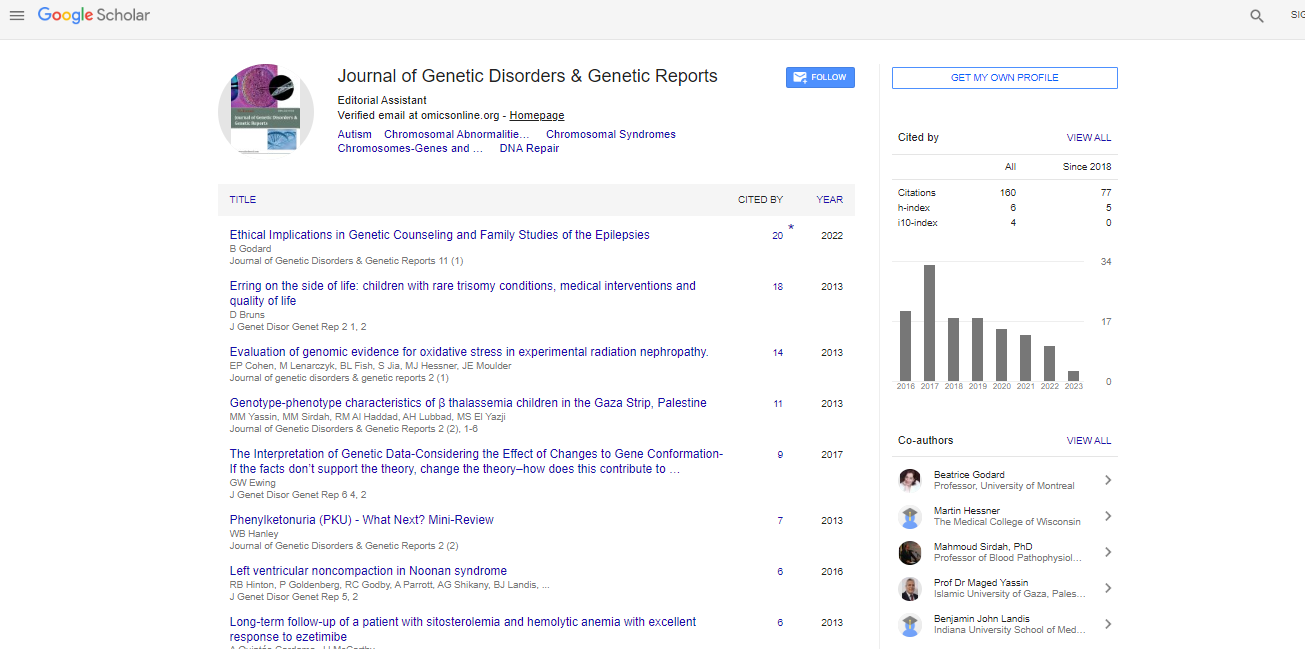Research Article, J Genet Disor Genet Rep Vol: 7 Issue: 2
Patterns of Utilization of Genetic Services Following the Initiation of Community based Primary Care Carrier Screening in a Traditional Muslim Community
Abu-Rabia R1*, Abo Rabia A2, Birk O3 and Elana Shoham-Vardi3
1The Department Public Health, Faculty of Health Sciences, Ben-Gurion University of the Negev, Israel
2Genetics Institute, Soroka University Medical Center, Faculty of Health Sciences, Israel
3The School of Psychological Sciences, Tel-Aviv university, Israel
*Corresponding Author : Abu-Rabia R
The Department Public Health, Faculty of Health Sciences, Ben-Gurion University of the Negev, Israel
Tel: +(97) 2506263911
E-mail: yaronsel@gmail.com
Received: July 02, 2018 Accepted: July 16, 2018 Published: July 23, 2018
Citation: Abu-Rabia R, Rabia AA, Birk O, Shoham-Vardi E (2018) Patterns of Utilization of Genetic Services Following the Initiation of Community based Primary Care Carrier Screening in a Traditional Muslim Community. J Genet Disor Genet Rep 7:2. doi: 10.4172/2327-5790.1000175
Abstract
Consanguineous marriages could result in high incidence of autosomal recessive diseases, leading to high rates of infant mortality, morbidity and severe permanent handicap. In the current study we aim to assess the effectiveness of a community based genetic advisory service (CGAS) that was initiated in 2005 to improve the utilization rate of genetic counseling and carrier testing among Muslim Bedouin population in Israel. Data were collected from the CGAS intake records of couples or individuals who attended the CGAS through 2005-2006.
Of the 1433 referrals to the CGAS during the year 2006, 719 (50.1%) were referred by primary health providers as they belonged to families associated with autosomal recessive genetic diseases. Most (N=1043, 73.0%) of the referrals were pregnant women, 583 (81.0%) were in consanguineous marriages, 340 (58.3%) of which were married to first cousins. Of all those in consanguineous marriages, 456 (78.2% out of 583) were referred for carrier status genetic tests, 17.7% had been tested in the past, and 4.1% refused testing. Results indicate that a culturally compliant community-based genetic advisory service, along with full coverage of costs was found to be effective in achieving high rate of informed carrier testing. Informing couples of their risk lead to early referrals and relatively high acceptance of fetal testing by CVS in conformation with religious rules.
 Spanish
Spanish  Chinese
Chinese  Russian
Russian  German
German  French
French  Japanese
Japanese  Portuguese
Portuguese  Hindi
Hindi 



